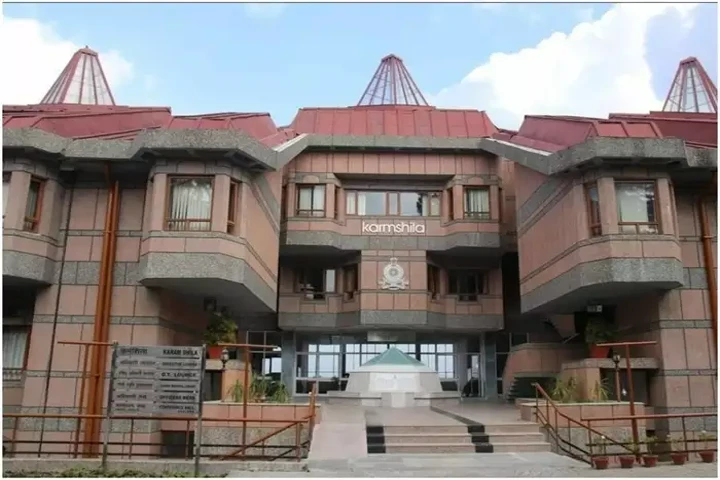The elections to five states are over and the frenzy has subsided. Soon people will be asked to elect their representatives in Himachal Pradesh and Gujarat and so on.
The next Parliamentary elections are now nearly two years away. People will excitedly and hopefully keep electing governments and keep waiting for them to deliver. In the past the people have kept waiting like Godot but the time has arrived for the old mold to fully break, ushering in the rise of India realizing the country’s full potential.
The past 75 years record has been patchy. There have been stunning achievements in the areas of nuclear science and outer space among others. India is today is an emerging economy, but despite these positive attributes, the country’s social indicators are poor. In this field many smaller countries have pipped India. This is something which a rising New India needs to take seriously.
In his speech ‘Three Warnings’, Dr Ambedkar had said “On 26th January, 1950, India will be an independent country. What would happen to her independence? Will she maintain her independence or will she lose it again? What perturbs me greatly is the fact that not only India has once before lost her independence, but she lost it by the infidelity and treachery of some of her own people”. When we analyze the situation today, we can infer that India’s below par performance in totality is also the consequence of the corrupt ways and ‘treachery’ of many.
Speaking about the role of the political parties Dr. Ambedkar, in his last address to the Constituent Assembly, had warned that “If the parties place creed above country, our independence will be put in a jeopardy a second time and probably be lost forever”. Under our constitution the elected executive has been vested with paramount powers, but this most important organ has unfortunately degenerated profoundly. Generally, politicians have worked only to further their self- interest and that of their parties at the pyrrhic cost of callously undermining public interest.
Whereas people are aware of the serious flaws that have crept into our political system whose rot and decay has to be arrested urgently, the other important instrument of governance, the bureaucracy is also not helping the cause. Our former President, Dr Pranab Mukherjee, had asserted that “Bureaucracy is the biggest hurdle of our development and we must rectify it”. The problem is that these observations have repeatedly come from the highest levels, but still no corrective measures have been attempted and whatever changes were implemented turned out to be cosmetic in nature only.
They did not succeed in altering even the slightest – leave alone radically changing the bureaucratic culture. It is not that everyone in the system is dubbed corrupt or rotten but unfortunately holistically, the bureaucracy is not being transformative. Instead, it is mired in inefficiency, apathy and a culture of nonperformance. This must change immediately as their role is critical today -in the current dismal scenario. Being the most vital and a permanent part of the governance system of our country, it has to perform efficiently. If it continues to remain inept and corrupt, it will derail the spasmodic efforts of the political establishment to improve the state of the nation.
The job of the executive was to ensure efficient implementation of the laws passed by the legislature and to provide honest, transparent and just governance. Unfortunately, the famed steel frame, the Indian Administrative Service (IAS) seems to have corroded and has either joined the corrupt bandwagon or has withdrawn totally into a shell, where it hears nothing, sees nothing, says nothing. This culture of inaction has cost the nation dearly. They were mandated to work honestly and efficiently to uphold the rule of the law and ensure that the politicians act according to the rule book. Unfortunately, they now seem to be in cahoots with the political class and instead of opposing/resisting their wrong doings, are pro-actively colluding with them and negating the rule of law.
This must change. Till such time that politics gets cleansed, the second most important institution of governance- has to not only wake up and shed its lethargy but also act in the true spirit of Service before Self. A concerted effort needs to be made to rejuvenate the lost spirit of service to the people.
The bureaucracy has to be reminded that they are being paid by the public so they have to reorient their loyalty towards the people and their game changing role as servants of the hapless public. Twenty-five years ago, in the state of Uttar Pradesh, a group of conscientious IAS officers decided to do so. They launched a crusade against corruption and the lack of accountability rife in their cadre. Despite virulent opposition, they went on to elect the’’ three most corrupt IAS officers’’ amongst them through a secret ballot. That experiment had a salutary effect on the system -for some time. However, these radical one-time experiments cannot solve the problem. The time has come for the bureaucracy to do some serious soul searching, check the culture of corruption and gross selfishness and instead become accountable to the people and promote their welfare ceaselessly.
On April 21, 1947, Sardar Patel while addressing the probationers of administrative service officers at the Metcalf house, New Delhi, referred to civil services as the steel frame of India. His advice to civil servants was to ““Take to the path of dharma – the path of truth and justice. Don’t misuse your valour. Remain united. March forward in all humility, but fully awake to the situation you face…". India will progress only when the bureaucracy begins to practice what Sardar Patel had prescribed.
Also Read: After stunning performance in UP elections, Yogi government must earnestly serve the people
(Vijay Shankar Pandey retired from the Indian Administrative Service. He has an established record of raising his voice against corruption in public life. Views expressed are personal and exclusive to India Narrative)




















